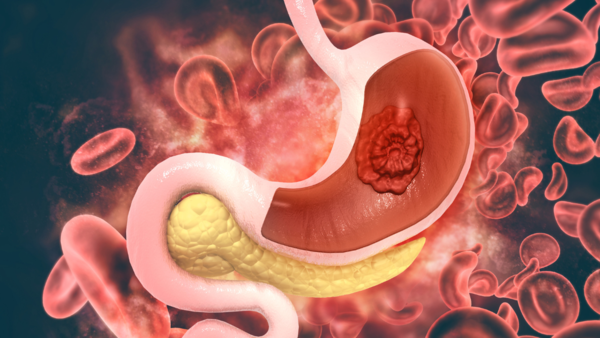- News
- lifestyle
- health-fitness
- health-news
- Upset stomach? 6 reasons behind this consistent problem and how to treat it
Trending
Upset stomach? 6 reasons behind this consistent problem and how to treat it
An upset stomach is often caused by a range of issues including infections, dietary habits, and stress. Typical symptoms like bloating, diarrhea, and pain can be managed by identifying the cause and making lifestyle adjustments. Diagnostic methods include medical history, clinical examination, and tests like ultrasonography and stool analysis, with treatments focusing on diet and lifestyle changes.

An uncomfortable and upset stomach can frequently result in discomfort, bloating, nausea, or diarrhea. Numerous things, including dyspepsia, intolerances to certain foods, stress, or infections, might cause it. It is possible to rapidly ease symptoms and restore digestive comfort by being aware of the reasons and efficient solutions. A variety of gastrointestinal (GI) symptoms, such as burning pain in the upper abdomen, bloating, vomiting, diarrhea, and abdominal cramps, are together referred to as "upset stomach. These symptoms can be brought on by a variety of illnesses and can appear singly or in combination.
These symptoms can be brought on by a variety of illnesses and can appear singly or in combination.
1. Infectious Diarrhea: Viral diarrhea is a common condition that usually goes away on its own. It is frequently brought on by consuming infected food or drink.
2. Peptic Ulcer Disease: Constant stomach pain and discomfort can result from ulcers in the stomach lining.

4. Malignancy: Rarely, stomach distress could be a sign of a more serious illness like cancer.
5. Dietary Habits: Eating a lot of processed wheat goods (bread, pasta, biscuits, noodles, cakes), spicy or fatty foods, and irregular eating schedules can all cause gastrointestinal problems.
6. Lifestyle variables: Stress, alcoholism, and smoking are among variables that might aggravate stomach pain.
According to Dr. Shailesh Sahay, Director - Internal Medicine, Max Hospital, Gurugram, “In order to determine the reason for an upset stomach, a thorough medical history and clinical examination are usually performed, along with any necessary testing. Abdominal ultrasonography, stool analysis, and blood testing are examples of preliminary diagnostics. To rule out serious illnesses, other examinations such as endoscopies or CT scans may be necessary, contingent on the severity and duration of symptoms.”
Dr. Anukalp Prakash, Lead Consultant - Gastroenterology, CK Birla Hospital, Gurugram mentioned ways to prevent and manage upset stomach:
* Include fresh fruits, veggies, and yogurt in your diet along with home-cooked meals.
* Steer clear of processed, spicy, and oily food.
* Cut back on alcohol and tobacco use.
* Learn stress-reduction strategies.
You may successfully treat and avoid an upset stomach by being aware of the possible reasons and making the necessary dietary and lifestyle adjustments.

Typical reasons for stomach issues
1. Infectious Diarrhea: Viral diarrhea is a common condition that usually goes away on its own. It is frequently brought on by consuming infected food or drink.
2. Peptic Ulcer Disease: Constant stomach pain and discomfort can result from ulcers in the stomach lining.
3. Food Allergies and Intolerances: GI symptoms can be brought on by reactions to specific foods, such as lactose intolerance, which results in difficulties digesting dairy products, or gluten intolerance, which results in a reaction to wheat, barley, and rye.

4. Malignancy: Rarely, stomach distress could be a sign of a more serious illness like cancer.
5. Dietary Habits: Eating a lot of processed wheat goods (bread, pasta, biscuits, noodles, cakes), spicy or fatty foods, and irregular eating schedules can all cause gastrointestinal problems.
6. Lifestyle variables: Stress, alcoholism, and smoking are among variables that might aggravate stomach pain.
Diagnosis and testing of stomach issues
According to Dr. Shailesh Sahay, Director - Internal Medicine, Max Hospital, Gurugram, “In order to determine the reason for an upset stomach, a thorough medical history and clinical examination are usually performed, along with any necessary testing. Abdominal ultrasonography, stool analysis, and blood testing are examples of preliminary diagnostics. To rule out serious illnesses, other examinations such as endoscopies or CT scans may be necessary, contingent on the severity and duration of symptoms.”
Treatment and prevention of upset stomach
Dr. Anukalp Prakash, Lead Consultant - Gastroenterology, CK Birla Hospital, Gurugram mentioned ways to prevent and manage upset stomach:
* Include fresh fruits, veggies, and yogurt in your diet along with home-cooked meals.
* Steer clear of processed, spicy, and oily food.
* Cut back on alcohol and tobacco use.
* Learn stress-reduction strategies.
You may successfully treat and avoid an upset stomach by being aware of the possible reasons and making the necessary dietary and lifestyle adjustments.
5 Essential oils everyone must have for pain relief and overall health
End of Article
FOLLOW US ON SOCIAL MEDIA









